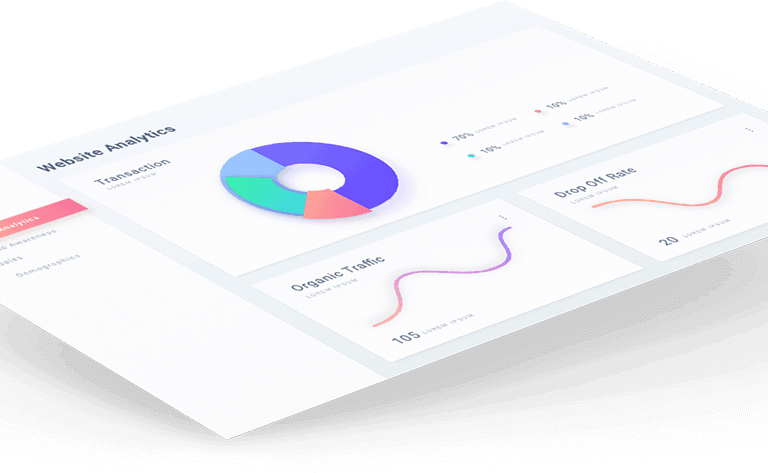The construction industry is the backbone of infrastructure development, shaping the modern world with its monumental projects.
However, the industry’s complexity and dynamic nature demand innovative solutions to ensure efficiency, safety, and profitability. Enter fleet management software, a technological marvel that is revolutionizing the way construction companies operate.
In this comprehensive blog, we will delve into how fleet management software is propelling the construction industry forward, enhancing operations, safety, and overall project success.
Unveiling Fleet Management Software for Construction
Fleet management software is a suite of digital tools designed to streamline the management of a company’s fleet of vehicles and equipment. In the construction industry, where projects span diverse locations, asset types, and timelines, such software offers a centralized platform to monitor, analyze, and optimize every aspect of fleet operations.
Transforming Construction Operations
The integration of fleet management software yields multifaceted benefits that transform the very core of construction operations:
Real-time Visibility and Tracking
Fleet management software provides real-time GPS tracking of vehicles and equipment. This visibility allows construction managers to monitor the precise location of assets, ensuring optimal resource allocation and route planning.
Asset Utilisation and Allocation
Efficient utilisation of vehicles and equipment is paramount in construction. Fleet management software offers insights into asset usage patterns, allowing companies to allocate resources effectively and reduce downtime.
Maintenance and Preventive Care
Construction fleets endure demanding conditions. Fleet management software enables predictive maintenance by monitoring engine health, fuel efficiency, and equipment wear. This preventive approach minimizes costly breakdowns and project delays.
Safety Enhancement
Safety is a cornerstone of the construction industry. Fleet management software allows construction managers to monitor driver behavior and provide feedback on safer driving practices, reducing accidents and ensuring compliance with safety regulations.
Route Optimisation
Construction projects often require assets to move between job sites. Fleet management software optimises routes, reducing travel time, fuel consumption, and environmental impact.
Data-Driven Decision-making
Fleet management software generates a wealth of data, from fuel consumption to maintenance schedules. This data informs strategic decisions, enabling construction companies to make informed choices that improve efficiency and profitability.
Revolutionising Construction Site Management
Construction projects thrive on efficient coordination and communication. Fleet management software plays a pivotal role in revolutionising site management:
Equipment Tracking
Heavy machinery and equipment are the backbone of construction. Fleet management software offers real-time monitoring, enabling construction managers to allocate assets where they are needed most and minimize idle time.
Job Site Progress
The software provides insights into when equipment arrives and departs from job sites. This information aids in tracking project progress, ensuring that equipment is deployed at the right time and place.
Documentation and Compliance
“Construction projects require documentation to meet regulatory and contractual obligations. Fleet management software offers digital records of asset usage, maintenance, and compliance, simplifying reporting and auditing processes.”
Budget Optimisation
Construction budgets are often tight. Fleet management software helps construction managers optimize spending by identifying underutilized assets, reducing unnecessary rentals, and preventing over-purchasing.
Adapting to Modern Challenges
The construction industry faces unique challenges, and fleet management software equips businesses to tackle them head-on:
Remote Management
Construction projects can be spread across vast areas. Fleet management software allows remote monitoring and management of assets, reducing the need for physical presence at multiple job sites.
Environmental Sustainability
Sustainability is a growing concern in construction. Fleet management software enables route optimization and fuel efficiency, reducing carbon footprint and aligning with sustainability goals.
Regulatory Compliance
Construction projects often require adherence to complex regulations. Fleet management software assists in tracking compliance by generating accurate records of asset operations and maintenance.
Future-Proofing the Construction Industry
As the construction industry evolves, so too must its tools and practices. Fleet management software offers future-ready solutions:
Integration with IoT
The Internet of Things (IoT) is reshaping industries. Fleet management software can integrate with IoT sensors on equipment, providing real-time data on performance, conditions, and usage.
Predictive Analytics
Advancements in data analytics enable predictive insights. Fleet management software can forecast maintenance needs and asset requirements, ensuring seamless project execution.
Mobility and Accessibility
Mobile apps enable real-time updates and management from anywhere. Construction managers can stay connected to their fleet even while on the move.
Conclusion
In the ever-evolving landscape of the construction industry, innovation is key to success. Fleet management software stands as a beacon of progress, ushering in a new era of efficiency, safety, and profitability. From real-time tracking to predictive maintenance, this technology empowers construction companies to navigate challenges and seize opportunities.
As construction projects grow in complexity and scope, the integration of fleet management software is not just a choice; it’s a necessity. By embracing these digital tools, construction companies can drive their projects forward with confidence, knowing that every asset is optimized, every operation is streamlined, and every project is poised for success.





